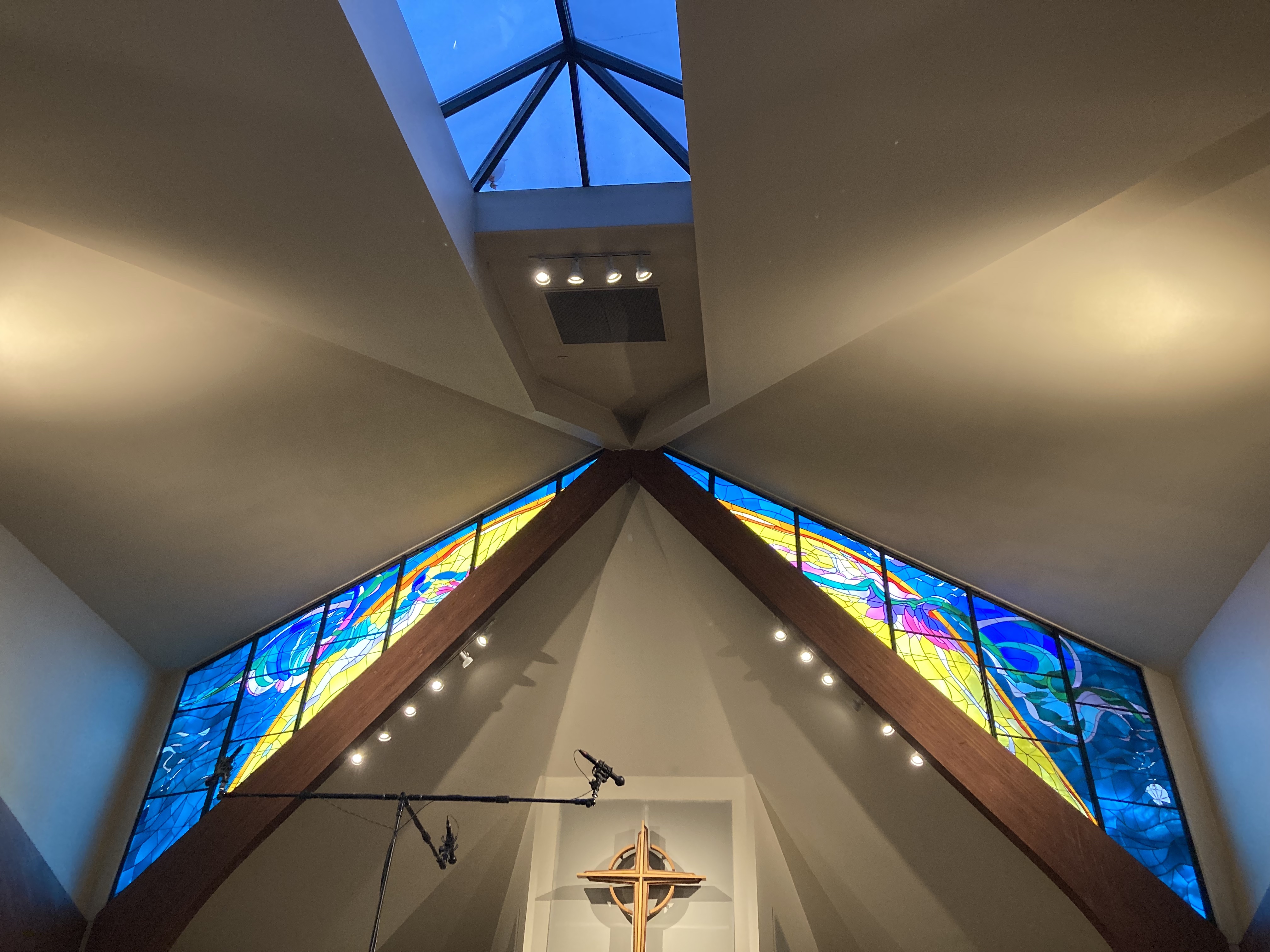
The Song of St. Bazetta / 2022
electric guitar, bass clarinet, and orchestra
commissioned by Steven Schick and The La Jolla Symphony Orchestra & Chorus and supported by the Thomas Nee Fund
audio︎
Performed by Madison Greenstone, Anthony Vine, and The La Jolla Symphony Orchestra & Chorus, June 3, 2022 at The Good Samaritan Church, La Jolla, California
There is a place called Bazetta. The etymological origin of its name is unknown. Bazetta is unremarkable in terms of its topography—tracts of uncultivated land adjoin with manicured lawns and linoleum-sided split level homes—yet it has an undeniable mystical presence: “a land for seeking esoteric spiritual truths,” as one hagiographer notes. Eremites came there instinctually, following an “ultra-thin allure,” and lived in the chestnut trees. Concealed by foliage, the eremites could only be heard praying. Their devotions were always sung, like angelic choirs who are believed to sing eternally in the presence of God. As the early music practitioner Christopher Page notes, the devotional singing of the eremites and their contemporaries was “not the self-conscious and extroverted activity that we [today] associate with performing.” They sang to more fully embody the spiritual meanings of their recitations, litanies, and testimonies. But that is not to say their intonations were not carefully tended to, nor deeply aesthetic. “Potent devotion beckons sonorous ecstasy.”
Hagiographic texts tell of a prodigious eremite from the forests of Bazetta whose voice “could still the sublunary world.” Walking aimlessly through the groves of chestnut trees one night, a prelate of the area, who had been afflicted by an inexplicable, generalized uneasiness for many years, suddenly felt a peculiar humming course through him. “I heard a tone like that of roaring waters… of a seraphim’s wings,” he recounted, “and awoke the next morning in the duff and detritus cured of my malaise.” The healing of the prelate was the first of many miracles attributed to the hermit, who was canonized and given the toponymic name St. Bazetta.
“The Song of St. Bazetta” is a fantastical reimagining of the devotional singing of St. Bazetta and the eremites of the region. The musicians sound with one voice, ceaselessly, in alternating choirs. They dwell upon the natural resonances of their instruments, following the slow undulation of a liturgical tenor. Without words and adornments, all that remains in this song is the voice, vox prius facta (“the voice first made”), the sounds that form our every utterance.